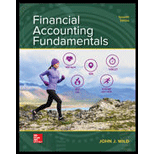
Investment:
It is a financial term which refers to spend or deposit money to get the financial benefits.
The different ways in which a firm can invest are mentioned below:
- Long-term investments
- Short-term investments
Short-term investments:
It includes such investments which are highly liquid in nature as these can be convert in form of cash easily during the period of 1 year.
It means record of financial data related to business transactions in a journal in a manner so that debit equals credit. It provides an audit trail to the auditor and a means to analyze the effects of transactions to an organization’s financial health.
Rules of Journal Entry:
The rules for journal entry are defined by 5 accounting components,
- Assets: Increase in asset should be debit and decrease should be credit.
- Liabilities: Increase in liabilities should be credit and decrease should be debit.
- Equity: Increase in Equity should be credit and decrease should be debit.
- Expense: Increase in expense should be debit and decrease should be credit.
- Revenue: Increase in revenue should be credit and decrease should be debit.
Financial Statements:
It refers to the statements that are being made to show the financial results and financial position of a business or a company.
To prepare:
Want to see the full answer?
Check out a sample textbook solution
Chapter C Solutions
FINANCIAL ACCT.FUND.(LOOSELEAF)
- Kindly help me with accounting questionsarrow_forwardCorrect answer pleasearrow_forwardA fertilizer manufacturing company has an industry average P/E ratio of 20. The company's earnings per share (EPS) are projected to be $6.50. What should be the company's share price based on the industry P/E ratio?arrow_forward
 Intermediate Accounting: Reporting And AnalysisAccountingISBN:9781337788281Author:James M. Wahlen, Jefferson P. Jones, Donald PagachPublisher:Cengage Learning
Intermediate Accounting: Reporting And AnalysisAccountingISBN:9781337788281Author:James M. Wahlen, Jefferson P. Jones, Donald PagachPublisher:Cengage Learning Financial Reporting, Financial Statement Analysis...FinanceISBN:9781285190907Author:James M. Wahlen, Stephen P. Baginski, Mark BradshawPublisher:Cengage Learning
Financial Reporting, Financial Statement Analysis...FinanceISBN:9781285190907Author:James M. Wahlen, Stephen P. Baginski, Mark BradshawPublisher:Cengage Learning Corporate Financial AccountingAccountingISBN:9781337398169Author:Carl Warren, Jeff JonesPublisher:Cengage Learning
Corporate Financial AccountingAccountingISBN:9781337398169Author:Carl Warren, Jeff JonesPublisher:Cengage Learning College Accounting, Chapters 1-27AccountingISBN:9781337794756Author:HEINTZ, James A.Publisher:Cengage Learning,
College Accounting, Chapters 1-27AccountingISBN:9781337794756Author:HEINTZ, James A.Publisher:Cengage Learning, Corporate Financial AccountingAccountingISBN:9781305653535Author:Carl Warren, James M. Reeve, Jonathan DuchacPublisher:Cengage Learning
Corporate Financial AccountingAccountingISBN:9781305653535Author:Carl Warren, James M. Reeve, Jonathan DuchacPublisher:Cengage Learning





